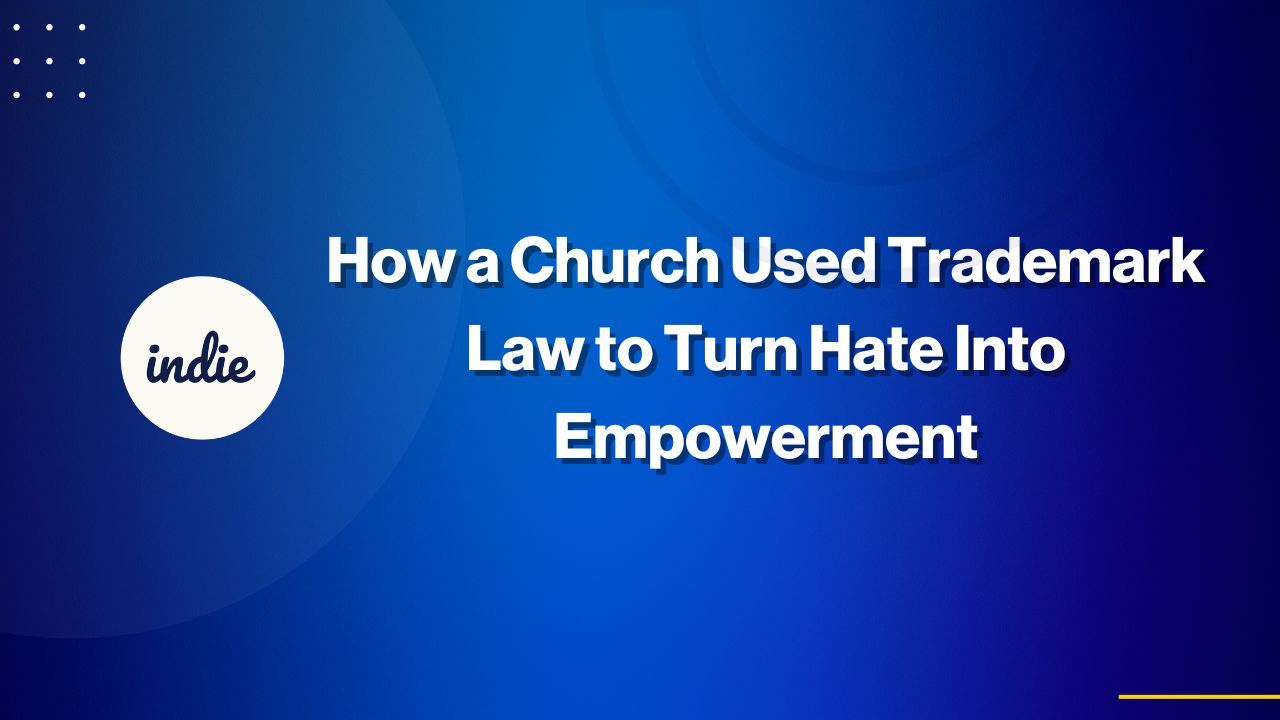How a Church Used Trademark Law to Turn Hate Into Empowerment
May 07, 2025
This is one of the boldest legal wins I’ve seen in a while.
Back in 2020, the Proud Boys tore down Black Lives Matter signs at Metropolitan AME Church in Washington, D.C. They showed up during rallies. They vandalized church property. It was hateful and intentional.
So the church fought back.
They filed a lawsuit.
They won.
And when the Proud Boys didn’t pay up?
A judge handed the church control of the Proud Boys' trademark.
Yup. That name and logo now legally belong to the church.
And they’re not wasting it.
Metropolitan AME recently launched a new merch line, proudly featuring reimagined messaging. Shirts read things like, “Stay Proud, Black Lives Matter,” with proceeds going toward racial justice and educational initiatives. As the church’s pastor Rev. William H. Lamar IV put it, “We decided to take this act of terror and convert it into a blessing.”
This isn't just a win in court—it's a landmark example of how trademark law can be used to reclaim power and push forward justice.
When Trademarks Become Protest
Most people think trademarks are only for businesses. Logos, names, slogans—they’re all tools to protect commercial brands. But this case turns that idea on its head.
By winning the legal rights to the Proud Boys’ trademark, Metropolitan AME didn’t just stop the group from using their own brand. They transformed it. The very name that was once associated with hate is now being used to amplify messages of equality, unity, and pride.
That’s the real power of intellectual property law—especially in cases like this where justice goes far beyond monetary damages.
The Legal Journey That Made It Happen
After the Proud Boys vandalized the church in 2020, the Metropolitan AME team didn’t seek revenge. They sought justice. With the support of civil rights organizations like the Washington Lawyers’ Committee for Civil Rights and Urban Affairs and the Lawyers’ Committee for Civil Rights Under Law, the church took legal action.
In 2023, a judge awarded them $2.8 million in damages. But when the Proud Boys failed to pay, the court went further. In a groundbreaking ruling in February 2025, the church was granted full ownership of the group’s trademarked name and logo.
This type of remedy is rare in trademark litigation—but incredibly effective. It not only punishes wrongful conduct but also prevents future misuse of the intellectual property.
Why This Matters for Trademark Law
This case underscores an important point: trademarks aren’t just business tools—they’re strategic assets.
They can be used to shut down infringers, protect reputations, and in unique cases like this, even reshape cultural narratives. For law firms that handle trademark registration, enforcement, or litigation, the Metropolitan AME victory offers a compelling reminder of how flexible and powerful trademark rights can be.
It’s also a great example for organizations and advocacy groups. If you’ve built a name, a message, or a mission, you have the right—and the ability—to protect it.
Rewriting the Narrative with the Law
Today, the church’s merch is selling not just as apparel, but as a statement. Every purchase supports their Community Justice Fund, which funds racial equity work and educational programs in the D.C. area.
Their story has been featured by major news outlets like NBC Washington, and it’s sparking new conversations in both legal and activist circles.
It proves that legal tools like trademarks can be used to reclaim control, rebuild trust, and reframe hate into hope.
Final Thoughts: Why This Work Matters
Most folks think trademarks are just about business. But they can be something bigger.
Trademarks can be protest.
They can be protection.
They can be power.
And in the hands of communities like Metropolitan AME Church, they can be a powerful response to injustice.
That’s why this work matters.
Ready to Protect Your Brand?
Book a free consultation call with us today to get expert guidance on trademark registration and protection.
(Or at least download our Ultimate Trademark Checklist to make sure you're covering all the bases.)

